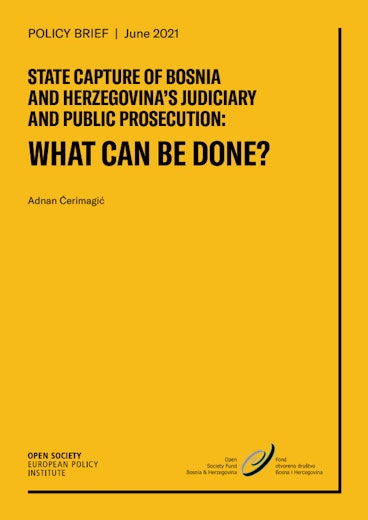Despite over two decades of intensive reforms, most experts, legal professionals, and the public agree: Bosnia and Herzegovina’s judiciary and public prosecutors remain captured. Those seeking to advance their own interests—both from the political and corporate spheres—exert undue influence over the country's legal system. To push for reform, and to protect judges and prosecutors from undue political and economic influence, the European Union has deployed and financed various political and technical instruments.
This policy paper, based on a study published in January 2021, looks at the role of judges and public prosecutors in Bosnia and Hercegovina, and how to improve their selection, protection, sanctioning, promotion, financing, and incentives to deal with complex and high-profile cases. It also suggests much needed improvements to systems for disclosing assets and assigning cases and looks to the judiciary itself for greater transparency and prosecutorial discretion.
Download
-
State Capture of Bosnia and Herzegovina’s Judiciary and Public Prosecution: What Can Be Done? (293.18 Kb pdf file)
Download the 18-page policy brief.
Read more
Voices In Depth
Ukraine’s Everyday Resistance

In the four years since Russia’s full-scale invasion, Ukrainians have sparked a civic reawakening. From frontline towns to major cities, ordinary people are defending democracy, caring for one another, and laying the groundwork for a post-war future.
Racial Discrimination
A Community Rallies Against Racial Discrimination in Denmark

When Denmark’s housing policies used racial discrimination to upend their community, local residents looked to the law to fight back. Now their six-year legal challenge is before the European Union’s top court in Luxembourg.
Evidence for Accountability
Q&A: How Open Source Evidence Is Challenging Abuses, Atrocities, and Disinformation

Bellingcat has pioneered the use of open-source research to expose human rights abuses, atrocity crimes, and high-level corruption and other criminal activities involving governments, gangs, and other illicit actors.
